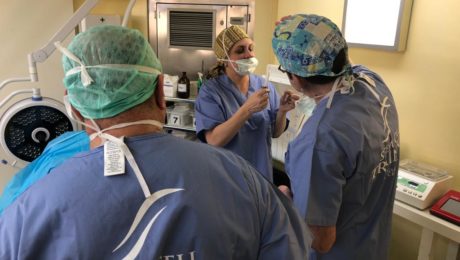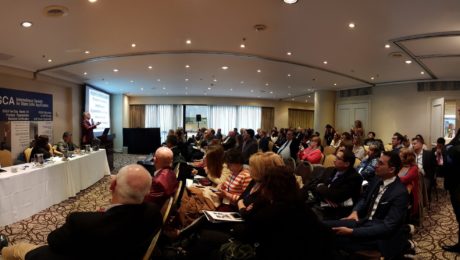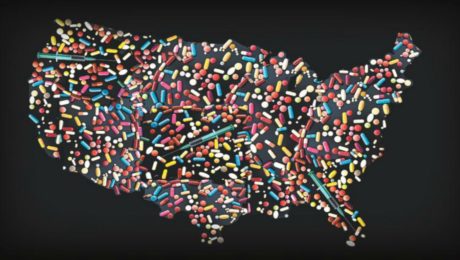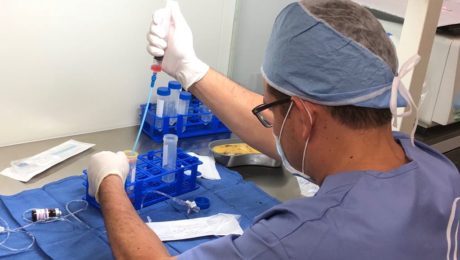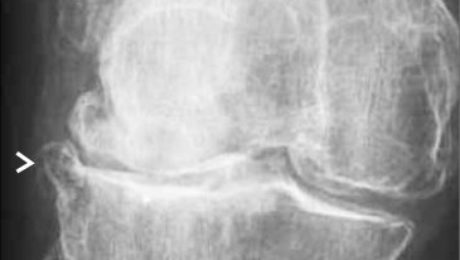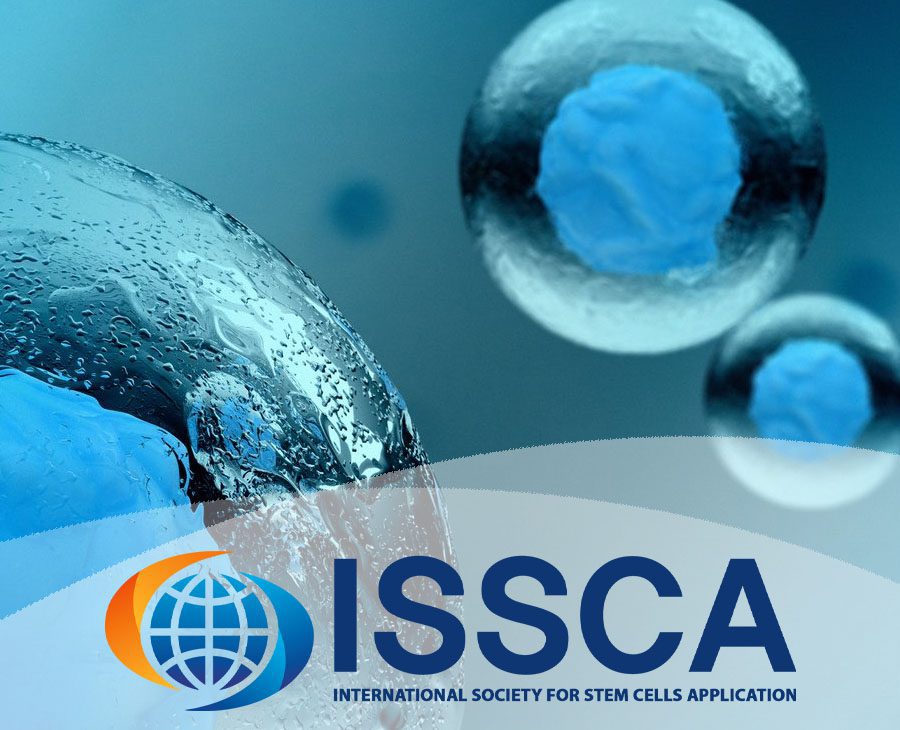Global Stem Cells Group Continues to Expand Training Efforts in 6 International Cities
ISSCA’s training programs assist physicians and researchers in developing better protocols for stem cell treatments.
MIAMI LAKES, Florida— The International Society for Stem Cell Application, a multi-disciplinary community of scientists and physicians collaborating to treat diseases and lessen human suffering through science, technology, and regenerative medicine, is continuing to expand its global training efforts by sponsoring three upcoming training sessions over the next month. The group has a busy schedule, with trainings taking place in Amsterdam, Abu Dhabi, Atlanta, Bogota, Miami and Mexico City.
ISSCA instructors will be hosting two onsite trainings, one in Amsterdam, Netherlands on February 22-23 and another in Abu Dhabi, United Arab Emirates on March 2-3. The training is designed to assist physicians interested in introducing regenerative medicine into their practices adhere to industry practices. Physicians will learn about industry developments and the latest advances in cellular-based treatment protocols.
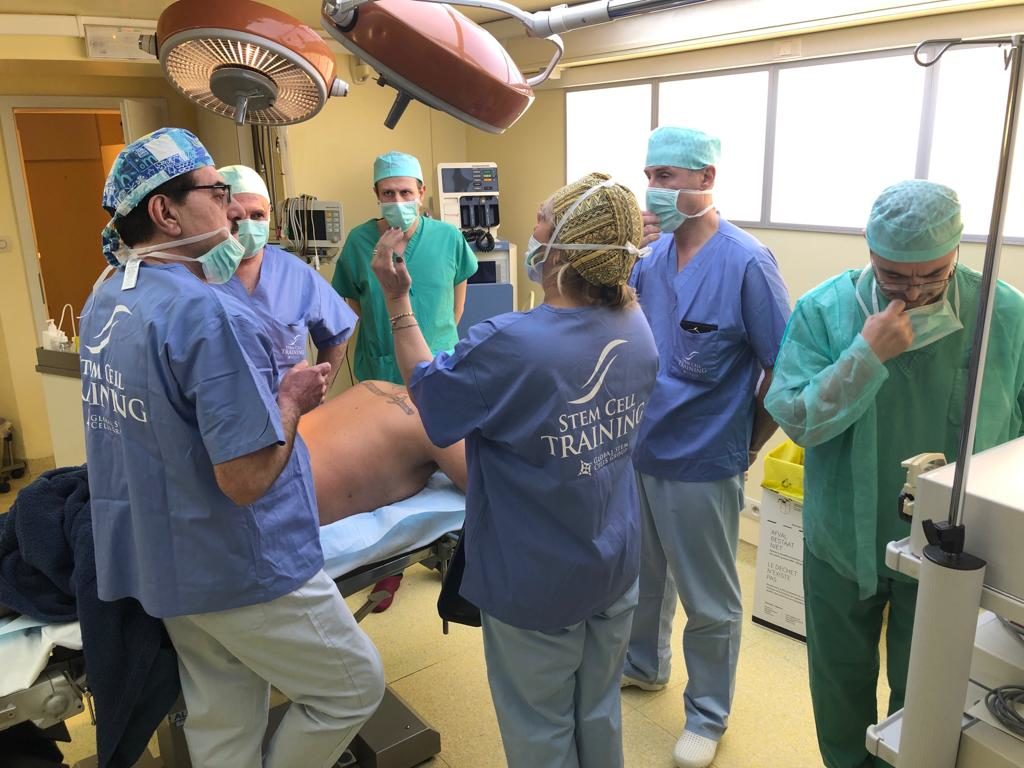
Utilizing ISSCA’s over 10 years of experience in regenerative medicine, the onsite trainings seek to bring the latest advances in the field to physicians across the world, removing barriers to access. In addition to training physicians, the group uses hands-on-training methods to instruct other medical staff in cellular treatment protocols so they can effectively assist their tending physicians. Trainings are highly personalized and offer physicians the ability to learn only the regenerative medicine treatments they are most interested in.
In early March, ISSCA instructors will also be traveling to Atlanta, Georgia to train physicians on allogenic compound stem cells derived from cord blood. This two-day training will take place in on March 29-30. Physicians with an interest in new regenerative medicine breakthroughs that have produced safer and shorter recovery times and those that have led to higher cellular counts in the degenerative disease treatment process will find this training of interest.
Instructors will lead physicians through a deep dive into the latest stem cell advances pertaining to cord blood research. Attendees will learn about processes for how to extract stem cells from a healthy donor and protocols on how to process stem cells in the lab while adhering to the highest quality control standards.
Instructors will additionally share the science behind allogenic compounds derived from cord blood and which current protocols use cord blood derived stem cells to promote patient healing.
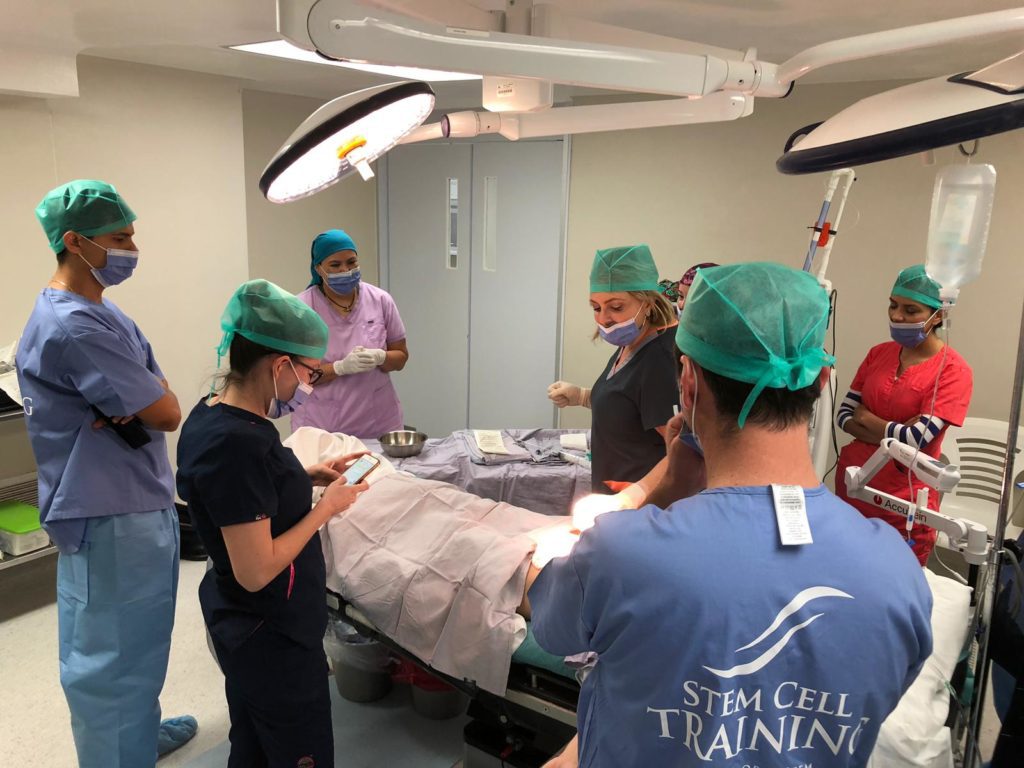
ISSCA trainers will be rounding out their upcoming training schedule with visits to Bogota, Colombia on March 15-16, Miami, Florida on March 22-23 and Mexico City, Mexico on March 29-30. These three trainings will offer Stem Cell Training Certification for physicians seeking to expand their knowledge on the newest stem cells protocols for those wanting to integrate regenerative medicine into their practices. The protocols covered in the trainings can be implemented in medical offices with mini lab equipment. The instructors will engage physicians in hands-on instruction where doctors can practice on live patients.
Trainings in Bogota and Mexico City will be conducted in Spanish, and interested participants can find more information at www.cursocelulasmadre.com, while interested Miami participants can learn more at https://www.stemcelltraining.net/hands-on-course.
To learn more about ISSCA, visit https://www.issca.us/
- Published in News
Global Stem Cells Group to Host Stem Cells and Regenerative Medicine Conference in Miami
ISSCA to host upcoming regenerative medicine conference in Miami that provides training on allogeneic cellular-based products.
MIAMI LAKES, Florida—The International Society for Stem Cell Application, a multi-disciplinary community of scientists and physicians collaborating to treat diseases and lessen human suffering through science, technology, and regenerative medicine, is set to host a conference in Miami on October 25-26, 2019.
The conference will be held at the Biltmore Hotel and will offer more than 250 attendees the opportunity to learn more about allogenic cellular-based products and how they play a critical role in the future of regenerative medicine.
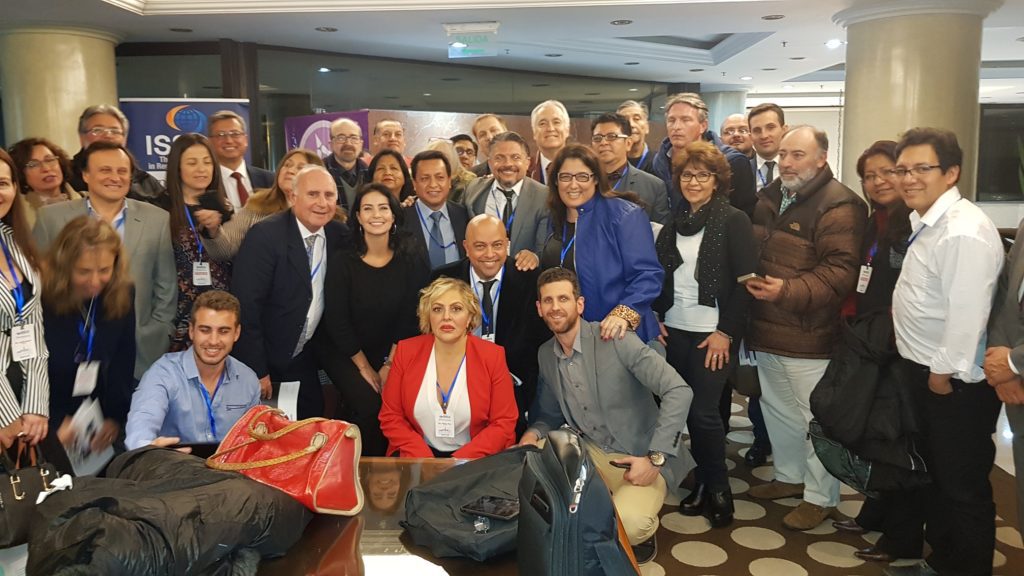
Physicians looking for new alternatives to improve the quality of life of their patients through emerging regenerative medicine protocols and advances are encouraged to attend the Miami conference. In this two-day event, attendees will learn why allogeneic cellular-based products have become today’s most popular regenerative medicine therapeutic option.
Well-respected scientists and researchers in the field of regenerative medicine from across the globe world will share with the audience the basic concepts needed to determine which allogenic cellular-based products are safe to use and what type of clinical indications can be targeted effectively.
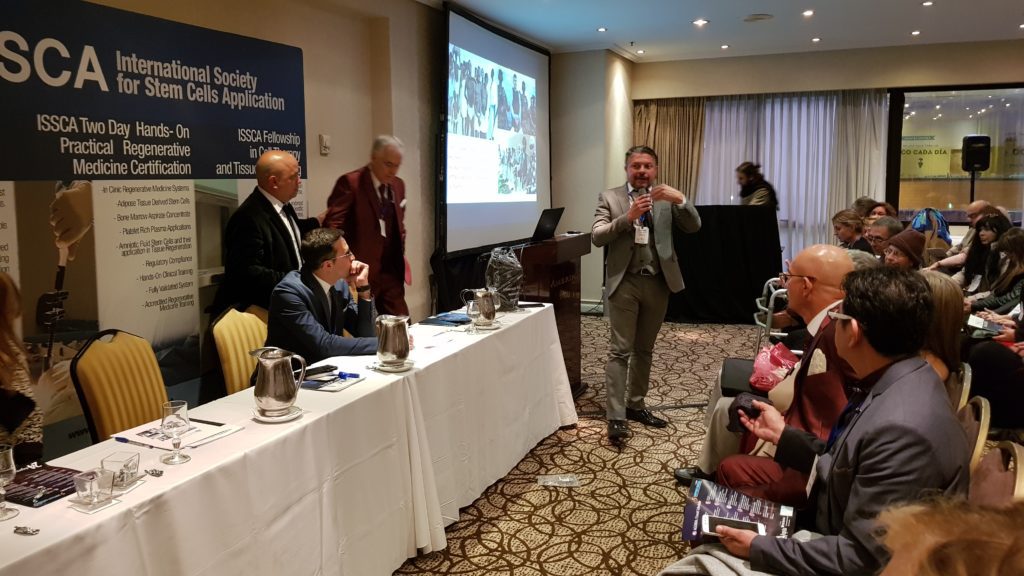
“We are pleased to bring this informative and exciting conference to Miami,” said Benito Novas Global Stem Cells Group Founder and CEO. “Our goal is to give doctors the knowledge they need to begin implementing cellular-based treatments in their own practices. These types of treatments have been proven effective in a host of clinical scenarios, including speeding up the patient’s rate of recovery and pain management.”
To learn more about ISSCA, visit https://www.issca.us/
- Published in News
Opioid Overdose Crisis in America.
Introduction to the Opioid Overdose Crisis
America is facing a profound opioid crisis, overshadowing other public health issues with devastating consequences.
Scope and Impact of the Crisis
The opioid crisis claims an average of 130 lives daily in the United States, drastically reducing life expectancy.
Causes and Contributors
Explore the factors contributing to opioid addiction, including over-prescription of pain relievers and the rise of synthetic opioids.
Economic and Health Burden
The economic burden of opioid misuse in the US is estimated at $78.5 billion annually, encompassing healthcare costs, lost productivity, and more.
Facts and Statistics
Rise in Prescription Rates
Opioid prescriptions surged from 112 million to 282 million between 1992 and 2012, declining slightly to 236 million by 2017.
Impact on Overdose Deaths
About 68% of the 70,200 drug overdose deaths in 2017 were opioid-related, a stark increase from previous decades.
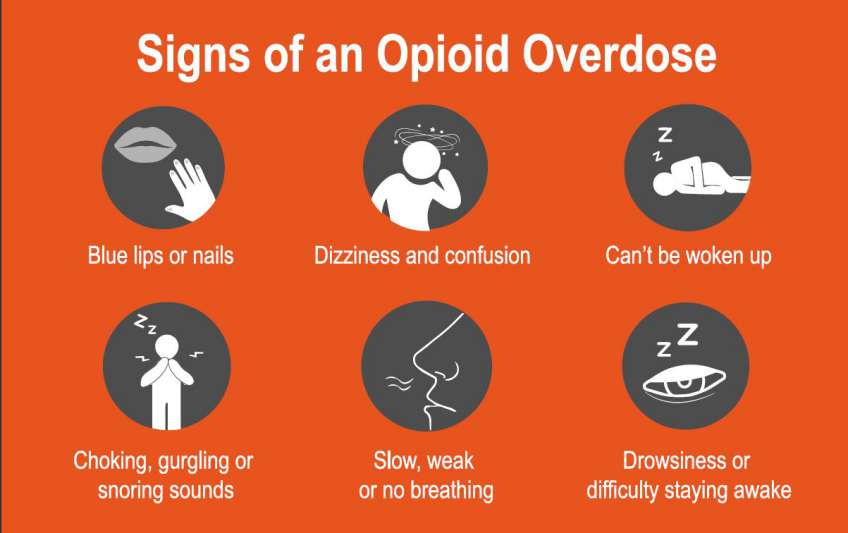
Misuse and Addiction Rates
Studies show that 21-29% of patients with chronic pain misuse prescription opioids, contributing to addiction rates.
Efforts to Combat the Crisis
Government Initiatives
The US Department of Health and Human Services (HHS) is tackling the crisis through initiatives focusing on overdose-reversing drugs, treatment access, research, public health surveillance, and pain management improvements.
HEAL Initiative
Introduced by the NIH, the HEAL (Helping to End Addiction Long-term) Initiative aims to accelerate scientific solutions to the opioid crisis.
Conclusion: Moving Forward
Despite media attention deficits, the opioid crisis demands urgent attention and coordinated efforts to mitigate its devastating impact on American communities.
Share Your Insights
What are your thoughts on the opioid crisis and its management strategies? Share your perspectives and experiences.
Final Thoughts
Addressing the opioid overdose crisis requires continued collaboration and innovation across healthcare, research, and public policy domains.
These headings structure the content for better SEO and readability, focusing on key aspects of the opioid overdose crisis and efforts to address it in the United States.
- Published in Blog
Autologous mesenchymal stem cell application for cartilage defect in recurrent patellar dislocation: A case report
Introduction
Recurrent patellar dislocation is characterized by repeated episodes of knee cap displacement, often resulting in cartilage lesions and chronic symptoms. Traditional management approaches often yield limited success, necessitating innovative treatments such as mesenchymal stem cell (MSC) therapy.
Case Presentation
Patient History and Examination
A 21-year-old male presented with left knee discomfort following recurrent patellar dislocations over ten years. Physical examination revealed anterior knee pain exacerbated by activities like stair climbing and exercise. Diagnostic imaging confirmed significant cartilage defects, classified as Grade 3 according to ICRS standards.

Surgical Intervention
The patient underwent arthroscopic microfracture and autologous bone marrow-derived MSCs implantation following Fulkerson osteotomy. Surgical procedures included lateral retinaculum release and tibial tubercle realignment to stabilize the patella.


Treatment Outcome
Postoperative Recovery
Post-surgery, the patient achieved full range of motion and began weight-bearing exercises. Eighteen months later, MSC implantation facilitated significant cartilage growth, improving International Knee Documentation Committee (IKDC) and Visual Analog Scale (VAS) scores.
Long-term Assessment
Two years post-MSC treatment, the patient reported no knee complaints and maintained full range of motion. MRI confirmed substantial cartilage regeneration in previously damaged areas.

Discussion
Challenges in Management
Recurrent patellar dislocations pose challenges due to high recurrence rates and associated cartilage damage. Treatment strategies like Fulkerson osteotomy combined with MSC therapy offer promising outcomes for severe cases.
Role of MSC Therapy
MSCs demonstrate potential in cartilage regeneration due to their chondrogenic differentiation capabilities and anti-inflammatory properties. This case highlights the efficacy of MSC therapy in managing extensive cartilage defects.
Conclusion
Combining Fulkerson osteotomy with MSC implantation represents a viable treatment option for chronic patellar instability and associated cartilage lesions. The integration of microfracture and MSC therapy supports significant cartilage regeneration and functional recovery.
- Published in Blog
Autologous micro-fragmented adipose tissue for the treatment of diffuse degenerative knee osteoarthritis: an update at 3 year follow-up
Background
The management of chondral disease poses challenges due to its poor healing potential. Biomechanical and biological changes can accelerate degeneration, leading to end-stage osteoarthritis (OA).
Conservative Therapies
Various conservative treatments are utilized before surgery, including non-pharmacological interventions and intra-articular therapies. Mesenchymal stem cells (MSCs), particularly from adipose tissue, show promise in cartilage regeneration due to their anti-inflammatory and regenerative properties.
Methods
The study, approved by the Ethics Committee, involved 30 patients with diffuse degenerative chondral lesions treated with autologous micro-fragmented adipose tissue between January and December 2014. Clinical evaluations were conducted at 3 years post-treatment.
Findings
Of the 30 patients, 24 underwent associated surgeries, while 6 had arthroscopy alone. At 3 years, 23% of patients received additional treatments. No adverse events were reported.
Results
Patients not requiring additional treatments maintained outcomes observed at 1 year, with significant improvements in functional scores including Tegner Lysholm Knee, VAS pain, IKDC subjective, and total KOOS.
Discussion
The study demonstrates sustained benefits of autologous micro-fragmented adipose tissue in treating diffuse degenerative knee chondral lesions at mid-term follow-up, supporting its role as an adjunct in surgical procedures.
Conclusion
Micro-fragmented adipose tissue shows promise in mitigating chondral degeneration, warranting further investigation into its protective effects in knee OA management.
References.
- Ährlund-Richter L, De Luca M, Marshak DR, Munsie M, Veiga A, Rao M (2009) Isolation and production of cells suitable for human therapy: challenges ahead. Cell Stem Cell 4(1):20–26View ArticleGoogle Scholar
- Arcidiacono JA, Blair JW, Benton KA (2012) US Food and Drug Administration international collaborations for cellular therapy product regulation. Stem Cell Res Ther 3(5):1View ArticleGoogle Scholar
- Bonasia DE, Dettoni F, Sito G, Blonna D, Marmotti A, Bruzzone M, Castoldi F, Rossi R (2014) Medial opening wedge high tibial osteotomy for medial compartment overload/arthritis in the varus knee: prognostic factors. Am J Sports Med 42(3):690–698View ArticleGoogle Scholar
- Caplan AI (2008) All MSCs are pericytes? Cell Stem Cell 3(3):229–230View ArticleGoogle Scholar
- Caplan AI, Correa D (2011) The MSC: an injury drugstore. Cell Stem Cell 9(1):11–15View ArticleGoogle Scholar
- Caplan AI, Dennis JE (2006) Mesenchymal stem cells as trophic mediators. J Cell Biochem 98(5):1076–1084View ArticleGoogle Scholar
- De Girolamo L, Kon E, Filardo G, Marmotti A, Soler F, Peretti G, Vannini F, Madry H, Chubinskaya S (2016) Regenerative approaches for the treatment of early OA. Knee Surg Sports Traumatol Arthrosc 24(6):1826–1835View ArticleGoogle Scholar
- Pak J, Lee JH, Kartolo WA, Lee SH (2016) Cartilage regeneration in human with adipose tissue-derived stem cells: current status in clinical implications. Biomed Res Int 2016:4702674View ArticleGoogle Scholar
- Røtterud JH, Risberg MA, Engebretsen L, Årøen A (2012) Patients with focal full-thickness cartilage lesions benefit less from ACL reconstruction at 2–5 years follow-up. Knee Surg Sports Traumatol Arthrosc 20(8):1533–1539View ArticleGoogle Scholar
- Ruetze M, Richter W (2014) Adipose-derived stromal cells for osteoarticular repair: trophic function versus stem cell activity. Expert Rev Mol Med 16:e9View ArticleGoogle Scholar
- Russo A, Condello V, Madonna V, Guerriero M, Zorzi C (2017) Autologous and micro-fragmented adipose tissue for the treatment of diffuse degenerative knee osteoarthritis. J Exp Orthop 4(1):33View ArticleGoogle Scholar
- Saithna A, Kundra R, Getgood A, Spalding T (2014) Opening wedge distal femoral varus osteotomy for lateral compartment osteoarthritis in the valgus knee. Knee 21(1):172–175View ArticleGoogle Scholar
- Sensebé L, Bourin P, Tarte K (2010) Good manufacturing practices production of mesenchymal stem/stromal cells. Hum Gene Ther 22(1):19–26View ArticleGoogle Scholar
- Su X, Li C, Liao W, Liu J, Zhang H, Li J, Li Z (2018) Comparison of arthroscopic and conservative treatments for knee osteoarthritis: a 5-year retrospective comparative study. Arthroscopy 34(3):652–659View ArticleGoogle Scholar
- Verdonk R, Madry H, Shabshin N, Dirisamer F, Peretti GM, Pujol N, Spalding T, Verdonk P, Seil R, Condello V (2016) The role of meniscal tissue in joint protection in early osteoarthritis. Knee Surg Sports Traumatol Arthrosc 24(6):1763–1774View ArticleGoogle Scholar
- Published in Blog
- 1
- 2


